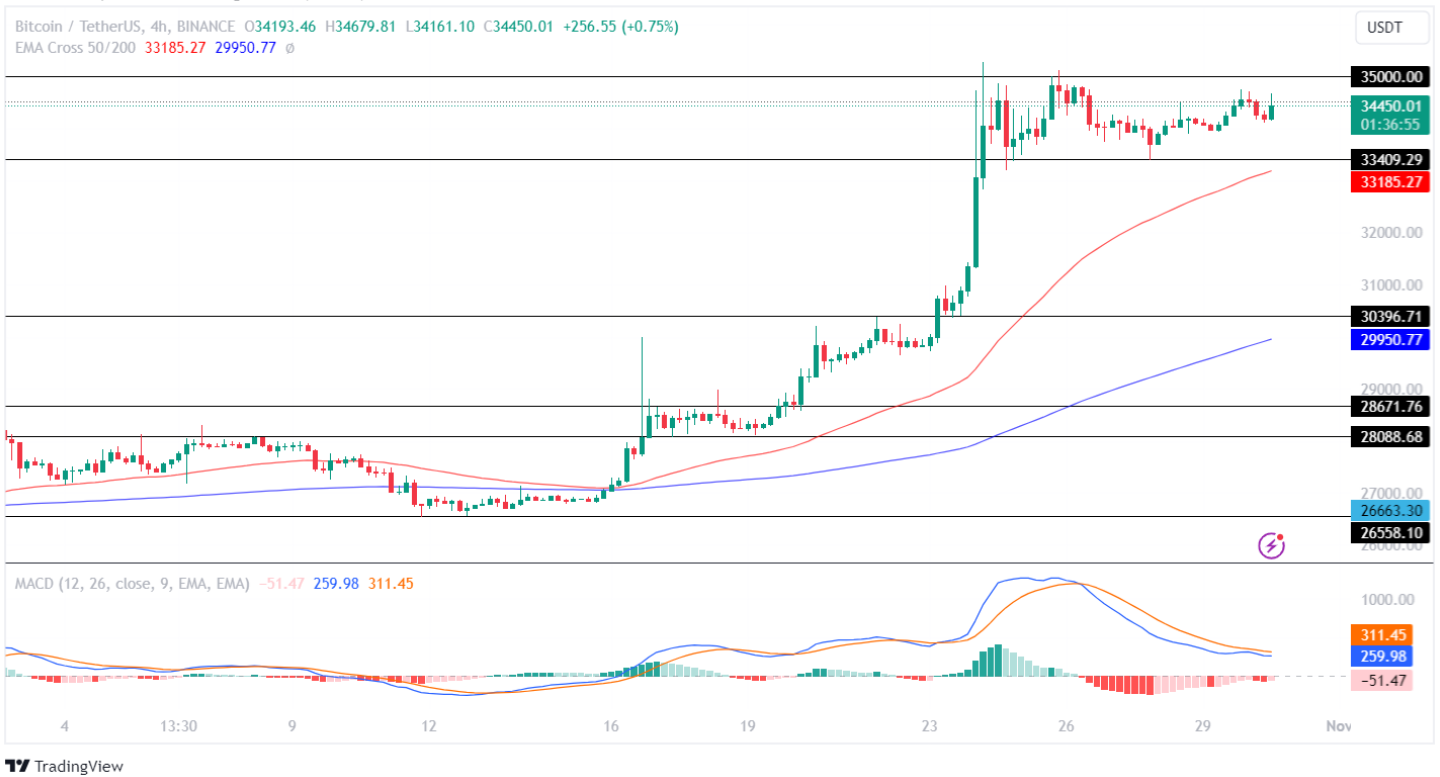Leveraging Technology: Ahsan's Vision For "Made In Pakistan" On The World Stage

Table of Contents
Embracing Digital Transformation for "Made in Pakistan"
Ahsan's plan centers on a complete digital transformation of Pakistan's manufacturing sector. This involves leveraging technology across the value chain, from production to distribution and marketing.
Automation and Robotics in Manufacturing
Automation and robotics are revolutionizing Pakistani factories, boosting efficiency and quality. Industries like textiles and pharmaceuticals are seeing significant improvements. The adoption of automated systems leads to:
- Increased productivity: Automated processes run continuously, maximizing output and minimizing downtime.
- Reduced production costs: Automation reduces labor costs and minimizes waste, leading to significant savings.
- Improved product consistency: Automated machinery produces consistent, high-quality products with minimal variations.
- Enhanced worker safety: Robots handle dangerous or repetitive tasks, improving workplace safety for human workers. This also frees up human employees to focus on higher-value tasks such as quality control and innovation. For example, advancements in robotic weaving in the textile industry are already increasing output and precision. Similarly, automated packaging in the pharmaceutical sector ensures sterile and consistent product delivery.
E-commerce and Global Market Access
E-commerce is opening doors to international markets for Pakistani businesses. This direct-to-consumer approach bypasses traditional export channels, offering:
- Reduced reliance on traditional export channels: E-commerce provides direct access to global consumers, reducing dependence on intermediaries.
- Direct reach to consumers worldwide: Pakistani businesses can build relationships with customers across the globe.
- Increased brand visibility: Online platforms provide opportunities for brand building and reaching new customer segments.
- Opportunities for niche markets: E-commerce allows Pakistani businesses to target specific demographics and niche markets worldwide. Several Pakistani fashion brands have already found significant success selling their unique designs internationally via online marketplaces like Etsy and Amazon.
Supply Chain Optimization through Technology
Technology plays a crucial role in streamlining supply chains, improving logistics, and minimizing waste. Data analytics and predictive modeling are key elements:
- Improved inventory management: Real-time tracking and forecasting minimize stockouts and excess inventory.
- Faster delivery times: Optimized logistics and efficient transportation reduce delivery times to customers.
- Reduced logistical costs: Streamlined processes and efficient resource allocation lower overall logistics expenses.
- Enhanced supply chain transparency: Technology provides better visibility into the entire supply chain, improving accountability and efficiency. Blockchain technology, for instance, can be used to track products from origin to consumer, ensuring transparency and traceability.
Investing in Technological Skills and Education for a "Made in Pakistan" Future
Investing in human capital is as important as technological advancements. A skilled workforce is crucial for the success of "Made in Pakistan."
Upskilling the Workforce
Training programs are vital to bridge the skills gap and prepare the workforce for a technologically advanced manufacturing sector. This involves:
- Bridging the skills gap: Targeted training programs equip workers with the skills needed for new technologies.
- Enhancing worker productivity: Upskilling boosts efficiency and productivity, leading to higher-quality outputs.
- Attracting foreign investment: A skilled workforce is attractive to foreign investors looking to set up manufacturing operations in Pakistan.
- Fostering innovation: A skilled workforce is better equipped to contribute to innovation and technological advancement within the industry. Government-funded vocational training programs focused on automation and digital skills are key to achieving this goal.
Promoting STEM Education
Investing in Science, Technology, Engineering, and Mathematics (STEM) education is essential to build a pipeline of future skilled workers:
- Creating a pipeline of skilled workers: STEM education creates a foundation for a future workforce equipped for technological advancements.
- Driving technological advancements: A strong STEM base fosters innovation and drives technological advancements in the manufacturing sector.
- Supporting innovation and entrepreneurship: STEM education promotes a culture of innovation and entrepreneurship, crucial for long-term growth.
- Strengthening the "Made in Pakistan" brand: A technologically advanced manufacturing sector strengthens the reputation of "Made in Pakistan" products.
Building a Strong Brand Identity for "Made in Pakistan" Products Globally
Building a strong brand identity is key to global competitiveness. This requires a multi-pronged approach.
Leveraging Digital Marketing
Digital marketing strategies are crucial for building brand awareness and driving sales of "Made in Pakistan" products:
- Increased brand visibility: Digital marketing increases brand awareness among international consumers.
- Targeted consumer reach: Digital marketing allows businesses to target specific demographics and customer segments.
- Enhanced brand reputation: Positive online presence and engagement build trust and improve brand reputation.
- Improved sales conversion: Effective digital marketing campaigns drive sales and increase revenue. This includes the strategic use of social media platforms, SEO optimization of company websites, and targeted advertising campaigns on platforms like Google Ads and social media.
Promoting Quality and Sustainability
High-quality products and sustainable manufacturing practices are crucial for building a positive brand image:
- Enhanced consumer trust: High-quality products build trust and loyalty among consumers.
- Improved brand loyalty: Consistent quality leads to repeat purchases and increased customer loyalty.
- Access to premium markets: High-quality, sustainably produced goods can access premium markets and command higher prices.
- Positive environmental impact: Sustainable practices showcase a commitment to environmental responsibility. This strengthens the brand's ethical standing and appeals to environmentally conscious consumers.
Conclusion
Ahsan's vision for "Made in Pakistan" hinges on a strategic embrace of technology across all aspects of manufacturing. By investing in automation, e-commerce, skilled labor, and a strong brand identity, Pakistan can become a globally competitive manufacturing powerhouse. The future of "Made in Pakistan" is bright, driven by innovation and a commitment to technological advancement. Let's continue to support initiatives that empower the "Made in Pakistan" brand and its journey to global recognition. Join us in championing the future of "Made in Pakistan" through technological innovation.

Featured Posts
-
 100 000 Bitcoin Trumps Speech And The Future Of Btc Price
May 08, 2025
100 000 Bitcoin Trumps Speech And The Future Of Btc Price
May 08, 2025 -
 Pressure Mounts For Economic Reform Amidst Taiwan Dollars Rise
May 08, 2025
Pressure Mounts For Economic Reform Amidst Taiwan Dollars Rise
May 08, 2025 -
 Bitcoin Madenciliginde Yeni Bir Doenem Sonun Baslangici Mi
May 08, 2025
Bitcoin Madenciliginde Yeni Bir Doenem Sonun Baslangici Mi
May 08, 2025 -
 Canada Post Strike Looms Potential Service Disruptions Later This Month
May 08, 2025
Canada Post Strike Looms Potential Service Disruptions Later This Month
May 08, 2025 -
 3 Star Wars Andor Episodes Free On You Tube
May 08, 2025
3 Star Wars Andor Episodes Free On You Tube
May 08, 2025
Latest Posts
-
 Bao Hanh Tre Em Tien Giang Phai Xu Ly Nghiem Cac Bao Mau
May 09, 2025
Bao Hanh Tre Em Tien Giang Phai Xu Ly Nghiem Cac Bao Mau
May 09, 2025 -
 Ra Soat Chat Che Co So Giu Tre Tu Nhan Xu Ly Nghiem Bao Hanh Tre Em
May 09, 2025
Ra Soat Chat Che Co So Giu Tre Tu Nhan Xu Ly Nghiem Bao Hanh Tre Em
May 09, 2025 -
 Vu Bao Hanh Tre Em Tien Giang Yeu Cau Cham Dut Hoat Dong Giu Tre Ngay Lap Tuc
May 09, 2025
Vu Bao Hanh Tre Em Tien Giang Yeu Cau Cham Dut Hoat Dong Giu Tre Ngay Lap Tuc
May 09, 2025 -
 So Very Fragile Understanding The Developmental Needs Of Young Children And The Daycare Dilemma
May 09, 2025
So Very Fragile Understanding The Developmental Needs Of Young Children And The Daycare Dilemma
May 09, 2025 -
 Is Daycare Too Soon A Parenting Experts Perspective On Infant And Toddler Care
May 09, 2025
Is Daycare Too Soon A Parenting Experts Perspective On Infant And Toddler Care
May 09, 2025
